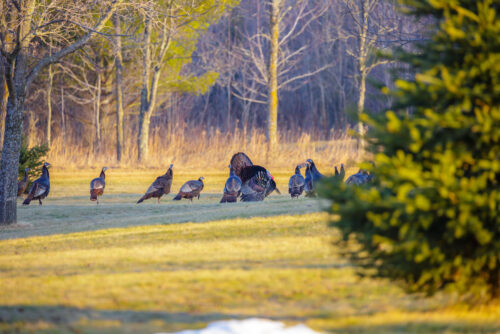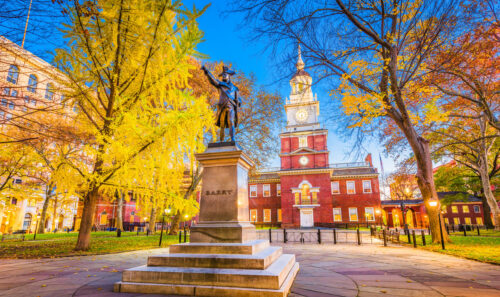In the midst of struggles and crises all across our nation, our friends and colleagues share what they think we should be reading to understand this moment and to fortify ourselves against the influence of ideologues and the movements that would undermine a strong civil society. The seventh in a series.
Read the previous installments of our “Readings for Troubled Times” series here. This continues our effort to understand the times in which we live by recommending readings that are relevant to the strange moment in which we find ourselves.
What you should read: Aleksandr Solzhenitsyn, 1978 Harvard Commencement Address
Why you should read it: Solzhenitsyn spoke at Harvard when European Communism and Soviet tyranny, of which he was the most powerful and compelling critic, were still strong, or at least appeared to be so, and bent on expansion. Everyone expected the great novelist and human rights activist to condemn these evils, and indeed he did. But the focus of the speech was on the decadence, self-indulgence, and cravenness of the West—especially western elites, such as those sitting in the audience of his talk. His prophetic truth-speaking stunned not only the people at Harvard, but liberals (or, as we would today say, progressives) throughout the country and the western world. They were, for obvious reasons, not entirely pleased! The speech, as it turned out, was a sort of prelude to his 1983 Templeton Prize address in which he argued that the moral decline of the west, and the various social pathologies manifesting it, was attributable to a simple fact: Men have forgotten God.
Robert P. George
McCormick Professor of Jurisprudence and Director of the James Madison Program in American Ideals and Institutions at Princeton University.
What you should read: Matyrona’s Home, by Aleksandr Solzhenitsyn.
Why: Solzhenitsyn’s beloved autobiographical novella Matryona’s Home (or perhaps more appropriately Matryona’s Homestead - Матрёнин двор) examines the harsh realities of revolutions, exile, and the enduring beauty of virtue. Written in 1959, the story parallels Solzhenitsyn’s own release from the Gulag and return from a commuted sentence of perpetual exile to a hovel in the small town of Miltsevo. Here, the story follows the young Ignatich, who takes up lodging in the dilapidated home of Matryona Vasilievna. Matryona is an elderly, twice-widowed mother who has lost everything, including her six children. She is the symbol of the suffering endured by her compatriots through the brutal regimes of Communist Russia. Despite her personal losses and constant abuse by her fellow villagers she remains steadfast, moral, faithful, and unflinchingly human. The violent revolutions, failed policies of a secular utopia, and the reality of sin have not infected her. She appeals to the very best in human nature. For anyone who uses uncertain times as an excuse to lie down, complain, or justify their vice, Solzhenitsyn provides an antidote. “We had all lived side by side with her and never understood that she was that righteous one without whom, as the proverb says, no village can stand. Nor any city. Nor our whole land.”
Ryan Hanning
Fellow, San Juan Diego Institute
What: Memoirs of a Superfluous Man, Albert Jay Nock.
Why: This may seem a counter-intuitive choice. Albert Jay Nock, a former editor of The Freeman and an intellectual compatriot of H.L. Mencken, was a committed misanthrope and his writing is about as unwoke as anything to be found still in print. But Nock keeps me honest. One of his core ideas is that any institution, law, or reform that does not take into account how human beings actually think and behave is doomed to failure. The most obvious example in Nock's lifetime was Prohibition, but the impulse to legislate people to a level of behavior foreign to human nature is clearly alive and well in 2020. Where I differ with Nock is in his fatalism. The conclusion Nock comes to in this final work—a sort of intellectual autobiography in which the author reveals almost nothing about his actual life—is that people invariably do more harm than good and the best we can hope for is to limit the damage. Thus Nock—prudently, I think—resists encroachments by the State. The problem is that he looks askance at virtually all efforts to improve education, literacy, women's rights, and democracy itself. Taking his philosophy to its logical extreme, he dismisses the institution of marriage as being woefully untethered to reality. What Nock misses in all this is the fact that taking a stand, even in service to a losing battle, can have a transformative effect on the individual soul. Most efforts to better the world will end in failure, but that is no reason not to try. Still, people would be well served to begin any such attempt from a place of healthy skepticism and a clear-eyed view of reality. If we don’t, we will be in danger of not only losing but of doing more harm than good.
Robert Dean Lurie
Author of Begin the Begin: R.E.M.’s Early Years






